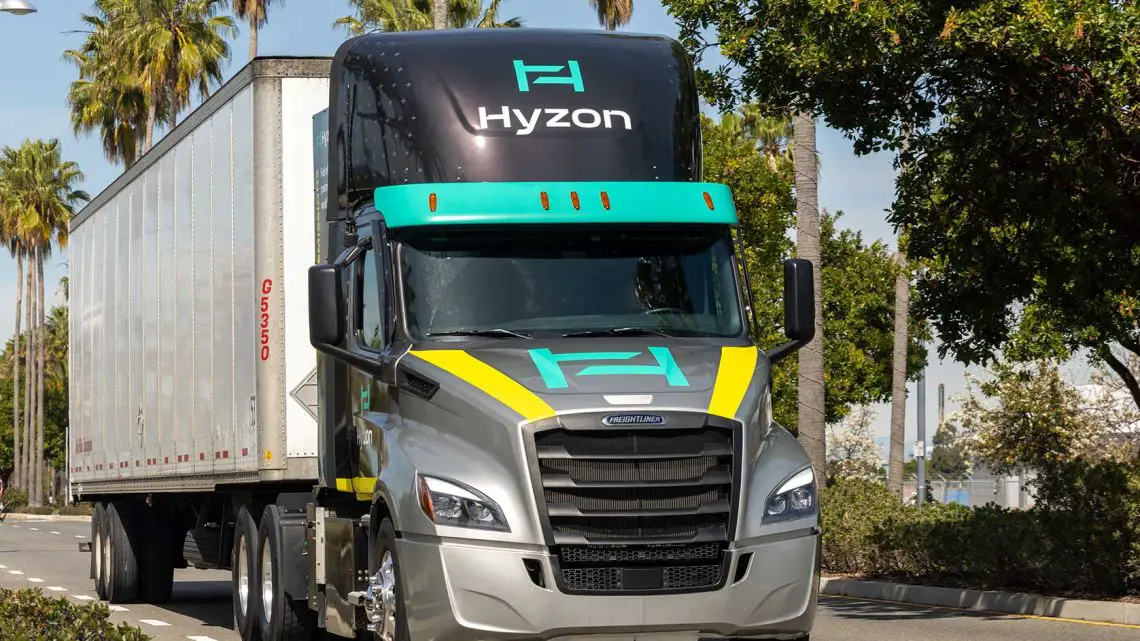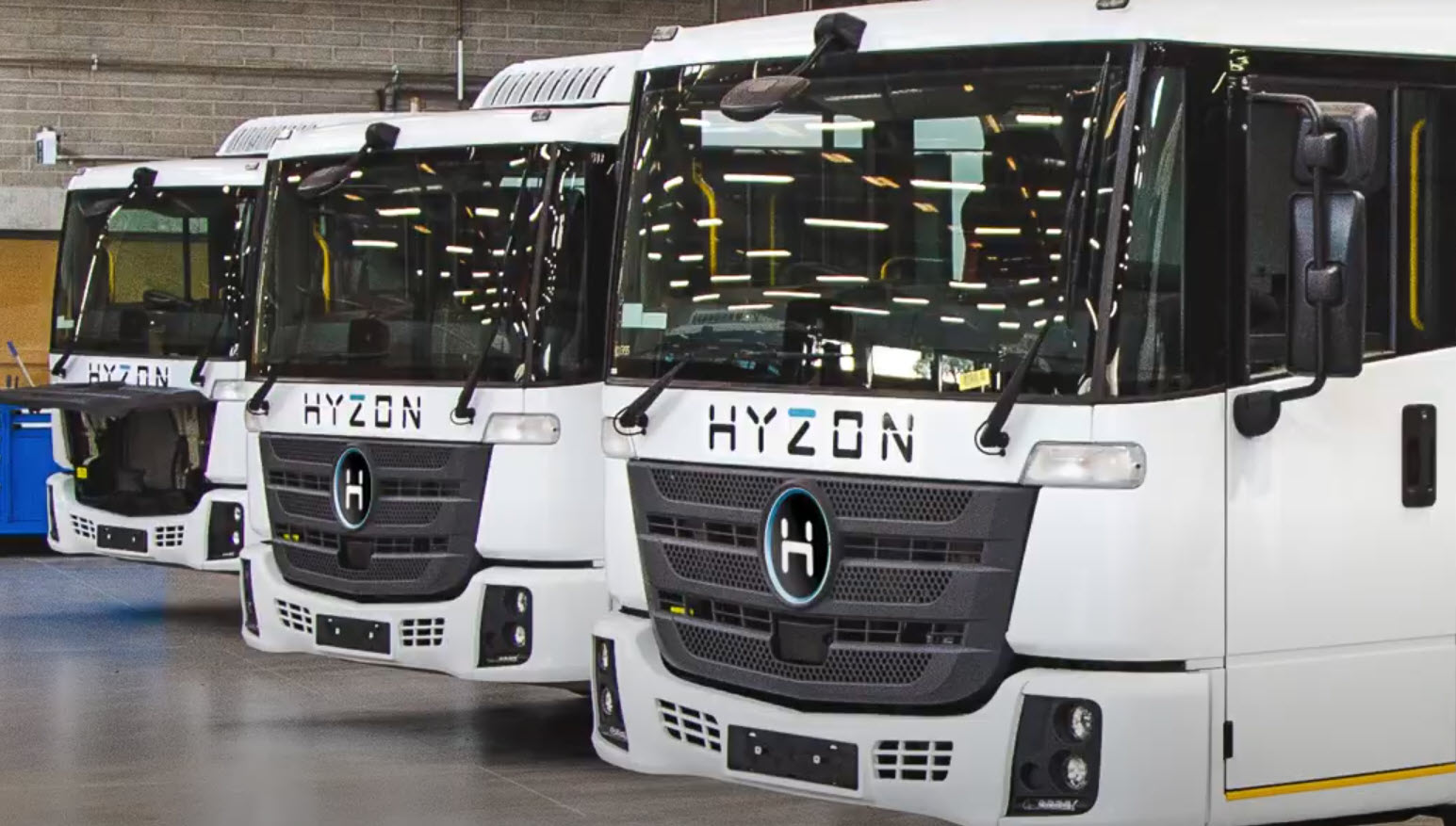
Hyzon Motors Issues WARN Act Notice Amid Financial Challenges
December 27, 2024Financial Woes and Policy Uncertainty Pushes Hyzon Motors
Hyzon Motors, a US based heavy duty hydrogen fuel cell truck manufacturer, recently announced a Worker Adjustment and Retraining Notification Act (WARN Act) notice. This decision affects employees at the company’s Bolingbrook, Illinois, and Troy, Michigan facilities, alongside its remaining workforce in these states. The announcement comes as the company deals with financial difficulties, uncertainties surrounding government subsidies, and a lack of consistent customer demand.
Technological Advancements in Hydrogen Fuel Cells
Hyzon has been at the forefront of hydrogen fuel cell technology, particularly excelling in systems designed for heavy-duty applications. A notable milestone achieved by the company in 2024 was the start of production for its single-stack 200kW fuel cell system (FCS). This system is designed to provide zero-emission solutions for industries such as freight transportation and waste management, which traditionally rely on diesel power.
The 200kW FCS distinguishes itself through its proprietary seven-layer Membrane Electrode Assembly (MEA)—a core component that sets it apart from competitors relying on outsourced materials. By vertically integrating the design and manufacturing of its components, Hyzon aimed to efficiently scale production and meet rigorous performance standards. This resulted in a production capacity of 700 systems annually, marking significant progress in reducing manufacturing bottlenecks.
Hyzon’s systems underwent stringent trials, proving they could outperform diesel trucks under demanding conditions like steep grades and long-haul routes. Additionally, quality controls, including in-line laser and optical vision systems, were implemented to ensure reliability and safety. The company’s certification under ISO 9001 further highlights its commitment to producing high-quality systems for the automotive and clean energy landscape.
Recent Developments and Customer Orders
Despite their technological advancements, Hyzon’s road has been bumpy. Earlier in 2024, the company celebrated securing its position in niche markets through several high-profile trials and orders. For instance, it announced North America’s first-ever hydrogen-powered refuse truck trial in partnership with Mt. Diablo Resource Recovery. This vehicle completed successful operations, signaling the potential value of hydrogen fuel cell trucks in the waste management industry.
Additionally, Hyzon received an order for two 200kW fuel cell electric trucks from South San Francisco Scavenger Co., a waste and recycling company. These orders highlighted Hyzon’s role in industries switching to sustainable alternatives. However, these deals, contingent on government subsidies, underscore the fragile balance in the industry’s reliance on public support.
Yet, financial data paints a stark contrast to these victories. At the close of the third quarter of 2024, Hyzon reported $369 million in accumulated debt and meager revenues of $134,000. The company’s inability to consistently secure further customer orders or bridge financing pushed its board toward the potential dissolution of operations, casting uncertainty over its once-bright future.
Financial Challenges and WARN Act Notification
Hyzon’s financial struggles were aggravated by an uncertain political climate impacting government subsidy programs, particularly the California Hybrid and Zero-Emission Truck and Bus Voucher Incentive Project (HVIP). These subsidies are critical for Hyzon’s business model, enabling customers to partially offset the high initial costs of fuel cell-powered fleets. However, with delays or reductions in these incentives, Hyzon’s customers have deferred or canceled purchasing commitments, creating a ripple effect on the company’s revenue stream.
To sustain operations and reduce liabilities, Hyzon announced the WARN Act notice in December 2024, beginning a 60-day period before workforce reductions commence. Unless a buyer or additional funding materializes by February 2025, the company may face a dissolution process, marking a significant loss for the clean energy sector.
Why These Developments Matter
Hyzon’s announcement shines a light on the complexities of transitioning to zero-emission technologies. While the company’s innovations demonstrate hydrogen fuel cell technology’s potential to reduce industrial carbon footprints, financial and infrastructural challenges still limit its scalability.
Hydrogen fuel cells offer significant benefits, operating with zero tailpipe emissions while providing the range and power necessary for industries like freight, waste collection, and logistics. They also capitalize on hydrogen’s versatility as an abundant energy source. Yet, achieving widespread adoption requires systemic changes including stronger public-private partnerships, consistent funding programs, and advancements in hydrogen production and distribution infrastructure.
Applying Hyzon’s Technology Today and Beyond
Though Hyzon’s future hangs in the balance, its achievements exemplify how hydrogen fuel cell technology can be a viable solution for decarbonizing heavy-duty sectors, even now. Cities and businesses investing in renewable technologies can learn from Hyzon’s trials, applying similar zero-emission solutions to their operations. For instance, municipal waste programs could adopt hydrogen-powered refuse trucks to reduce local air pollution, while logistics companies can tap into hydrogen-powered vehicles for high-emission routes.
Looking ahead, the industry must address affordability and infrastructure hurdles to unlock hydrogen technology’s full potential. By broadening manufacturing at a global scale and reducing dependence on subsidies, hydrogen vehicles may become more competitive against alternatives like battery-electric technology. At the same time, initiatives to build an efficient hydrogen supply chain could enhance adoption, providing the efficiency and reliability heavy industries demand.
While Hyzon’s experience underlines the challenges of commercializing emerging technology, its innovations act as a hopeful reminder of what’s possible for sustainable transportation and industrial power. Moving forward, policymakers, investors, and industries alike should rally behind the principles that Hyzon sought to deliver—a cleaner energy future powered by hydrogen.



 With over 15 years of reporting hydrogen news, we are your premier source for the latest updates and insights in hydrogen and renewable energy.
With over 15 years of reporting hydrogen news, we are your premier source for the latest updates and insights in hydrogen and renewable energy.